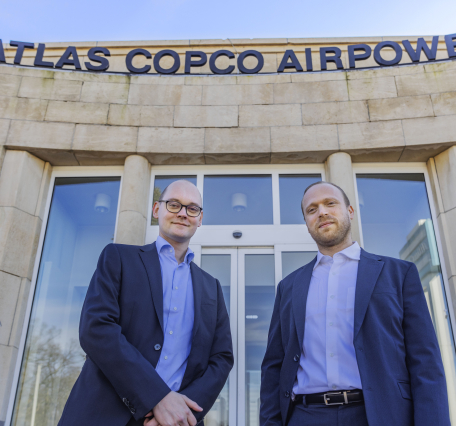

Atlas Copco Airpower: compressed air innovations in a paradise for engineers
How can you continue to grow with industrial activities at this relatively expensive location?
Ewan Van Minnebruggen: “The key word is innovation. We have around 3,500 people working on this site, 800 of whom are engineers. For them, this is paradise. In fact, Atlas Copco Airpower is known as the university of compressed air. That’s no meaningless statement, it’s really true: a huge number of innovation projects are going on here. And not just relating to our products, but also the production processes in our factories. These are truly smart, highly automated factories with automated guided vehicles and robots and cobots which support our people. The markets we operate in are very competitive. To continue to grow in them, we must focus on factors which will help us make a difference. Innovation is clearly one of the key factors for us.”
Compressors have existed for decades and work well. So, what are all those 800 engineers working on now?
Ignace Tack: “Our developments are also driven by global trends. Everything related to the environment, with CO2 emissions or with energy consumption is very important to our industrial clients. We therefore continue to work on improving the energy efficiency of our compressors. An important field is also energy recovery, because compressing air releases heat which can then be used to heat other processes, for example. We are also the first company to launch a fully battery-driven mobile compressor on the market. A second area of innovation is making our compressors smart. Data-driven applications like predictive maintenance are very important, as is connectivity with which our compressors can be part of the Internet of Things and learn from each other, for example. Finally, there’s the development of special compressors for extreme circumstances. The use of hydrogen, for example, requires it to be compressed using very high pressures, so we are working on developing our piston compressors.”
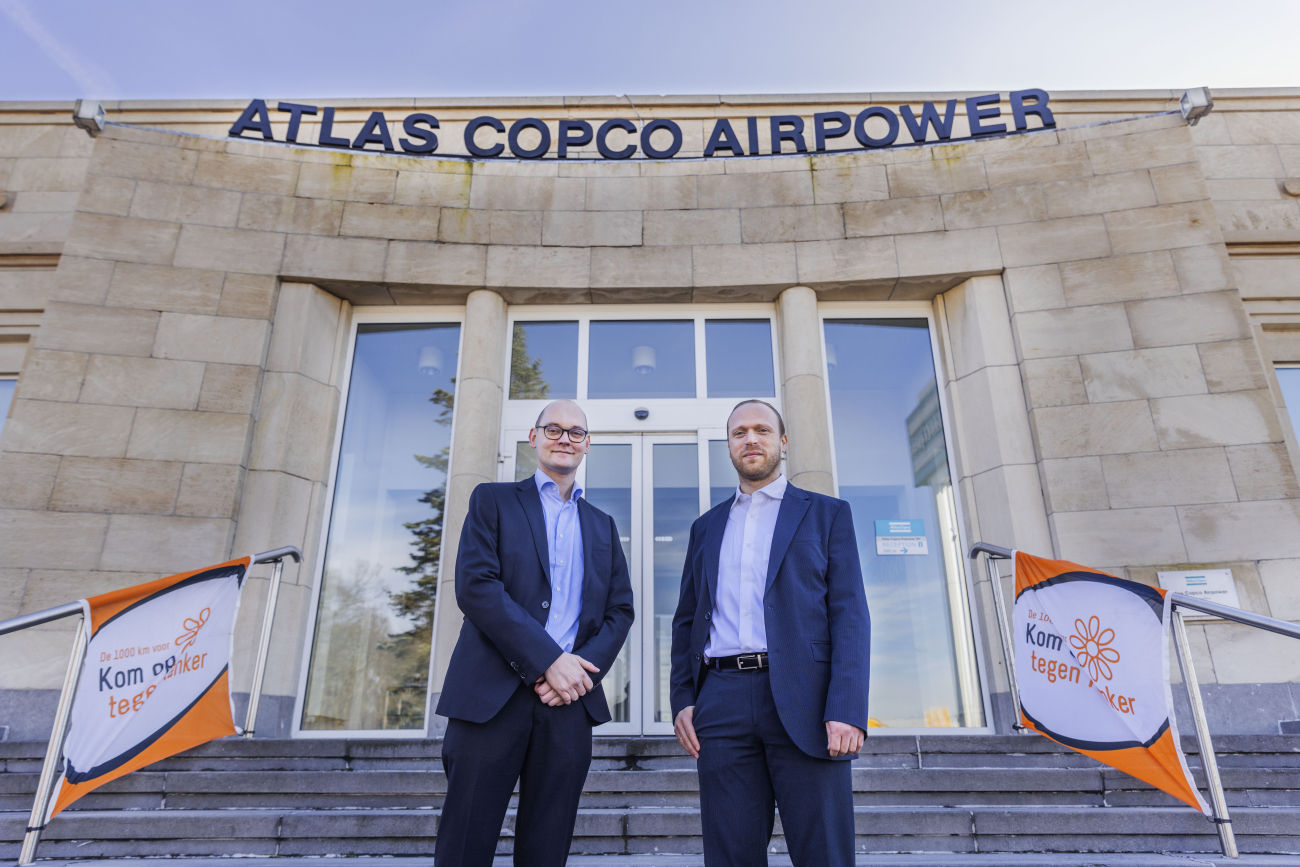
To what extent and at what stage is your IP group involved in these innovations?
Ewan Van Minnebruggen: “IP is a permanent part of our development process. In all our projects, IP is included as a deliverable which project teams need to report on. Our group is often asked early on in a project to analyse the relevant IP and determine our position in that respect. During a project, we are then asked what distinguishes us in technological terms and whether that’s something we can and want to protect. Separate from specific projects, we also look at trends in the market: what are our clients, suppliers and competitors doing in terms of innovation and IP? We may then start working on certain developments ourselves. So, it’s a mix. We support our innovations, but sometimes we also provide guidance and inspiration.
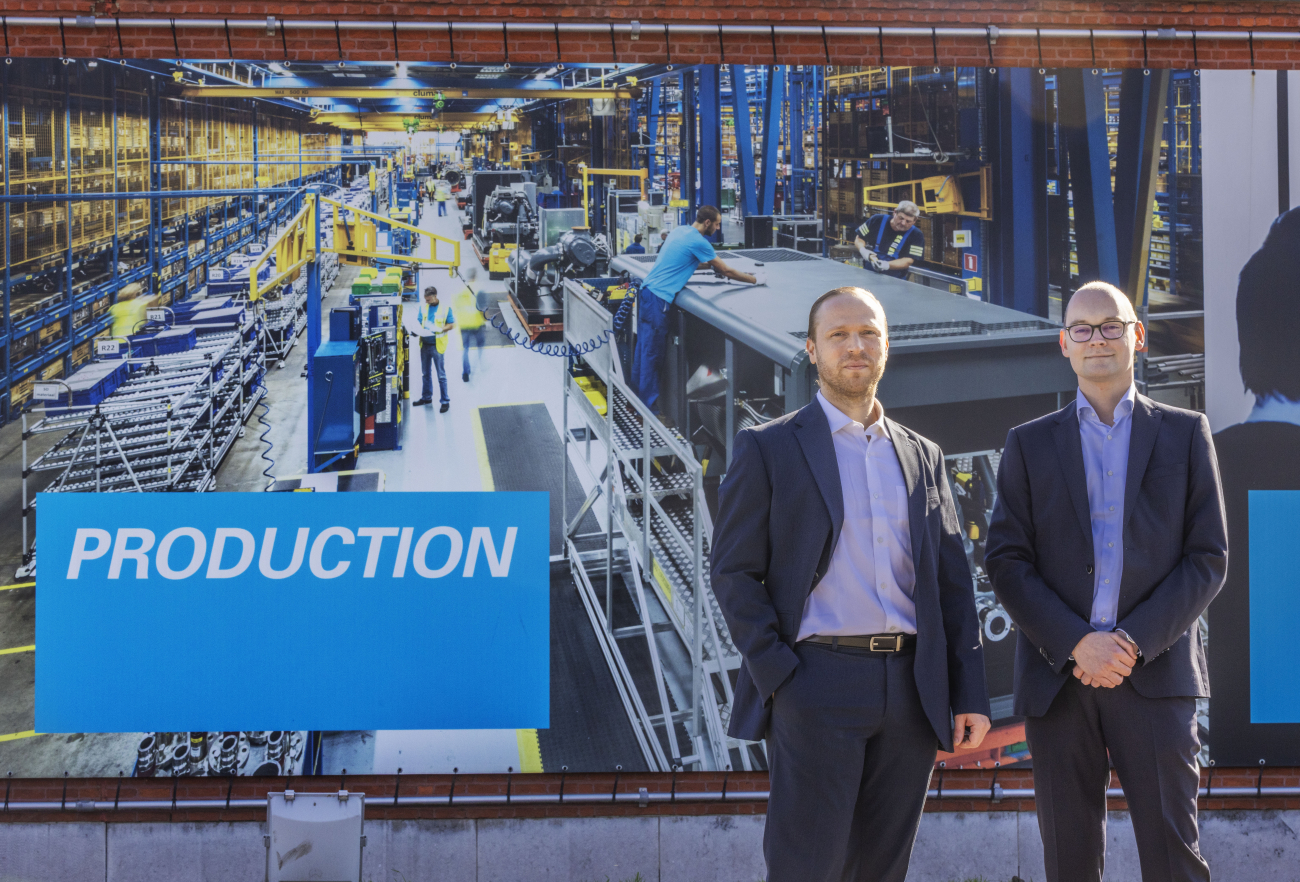
Do you ever stop innovation projects if you find that the results can’t be protected?
Ewan Van Minnebruggen: “That might be the case, but it would be unusual. Our policy obviously states that we must not breach the IP of third parties. So, you might have a product on the drawing board but you don’t launch it because of a patent blocking it. But we also enjoy a challenge. We will then work with our engineers to find a way to proceed. And sometimes, that search for an alternative route leads to a better product than the initial one. Our mantra is “There is always a better way”, so we always keep looking for ways to do things better."
Competitors probably monitor what you do too. How important is protecting IP rights in your business?
Ewan Van Minnebruggen: “Innovation is a key element in our differentiation strategy. All our efforts to distinguish ourselves are ultimately translated in our brand value. That covers our trade name, our reputation, the trust that clients have in us. Everyone in this company works hard every single day to build and maintain that. Our brand value is therefore literally invaluable and one of the most important assets of Atlas Copco. What we can’t or won’t tolerate is that being damaged. Our trademarks are just as important as our patents. Where IP rights mainly offer us protection is in acting against counterfeit goods. These are always of inferior quality and they create false expectations among our clients. We don’t want phone calls from dissatisfied clients who believe they’ve bought Atlas Copco products but have ended up with a counterfeit.”
With counterfeit products, I tend to think of bags and sunglasses, not compressors for professional users. Does that really happen?
Ewan Van Minnebruggen: “Absolutely. We come across very strange things. From entire compressors which are fully branded as Atlas Copco, to counterfeit parts like filters, oil and controllers which are sold in the aftermarket. Obviously, we take action. To protect our own brand and reputation and our clients, because counterfeit goods can create safety and environmental risks for them.”
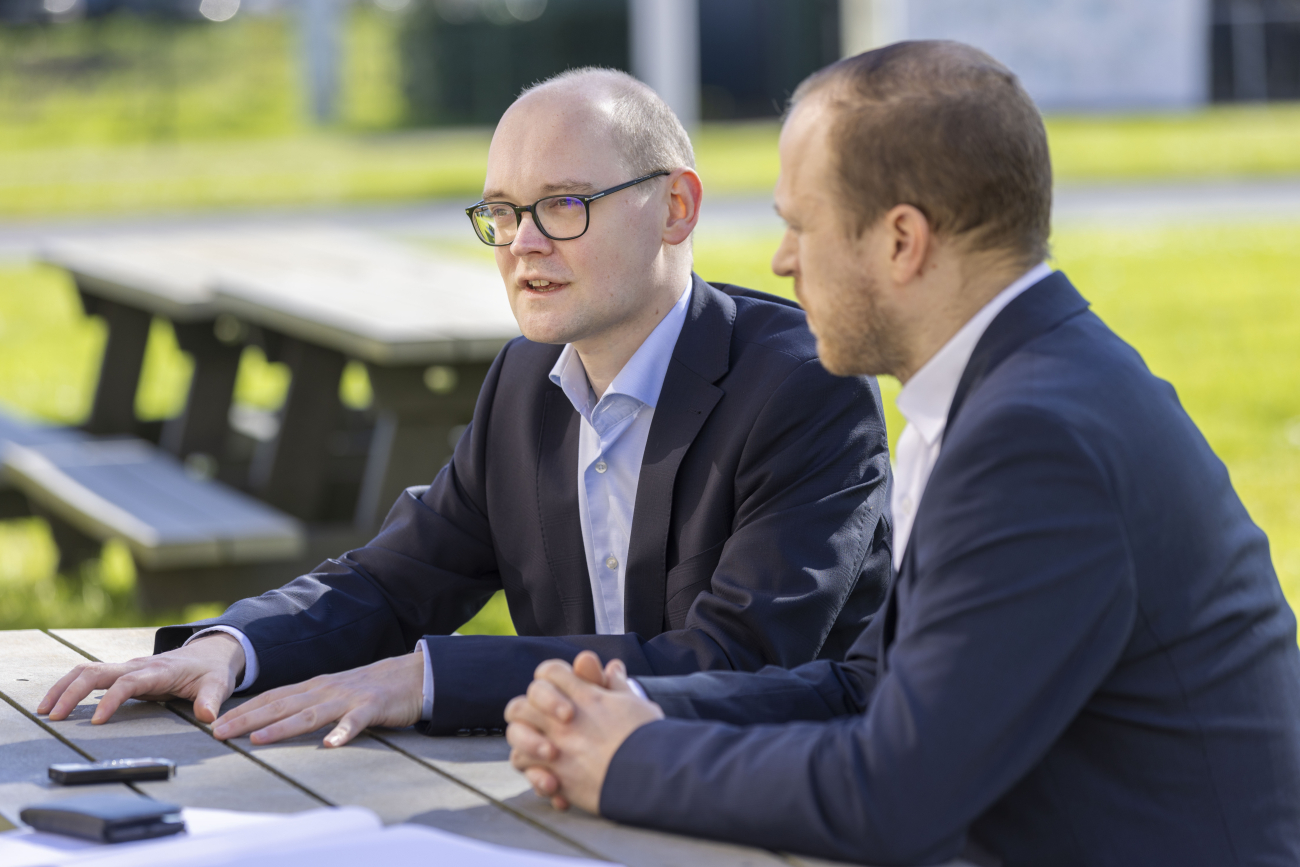
So, you need to operate worldwide. How do you organise that in practice?
Ewan Van Minnebruggen: “That’s a real challenge, but it’s an important task for our IP organisation. Since Covid, for example, we see more and more sales happening online. We therefore try to scour as many online marketplaces as possible in search of counterfeit products. But we still go out and about too. Colleagues visiting trade fairs, for example, keep an eye on things, because we sometimes see counterfeit goods being offered there too. Whether and how we then proceed is determined on a case-by-case level, depending on the scale of the breach. We might then send a cease-and-desist letter, take online take-down actions or launch legal proceedings. Over the last ten years, we’ve seen a rising trend in the number of legal cases we’ve had to launch. The scale of the counterfeiting industry is sometimes staggering.”
Can you give an example?
Ewan Van Minnebruggen: “In one case that we launched with the local authorities, an entire factory was seized that was selling so-called Atlas Copco filters, an important spare part for our compressors. A truck filled with boxes of filters was found there. Further investigation revealed that the factory was part of an entire network. They work together with a supplier which delivers the Atlas Copco-branded boxes and has a whole distribution network for those counterfeit goods. So, it involved a group of shell companies, a small-scale Atlas Copco, but with malicious intentions. This example was based in Asia, but is not limited to one country.”
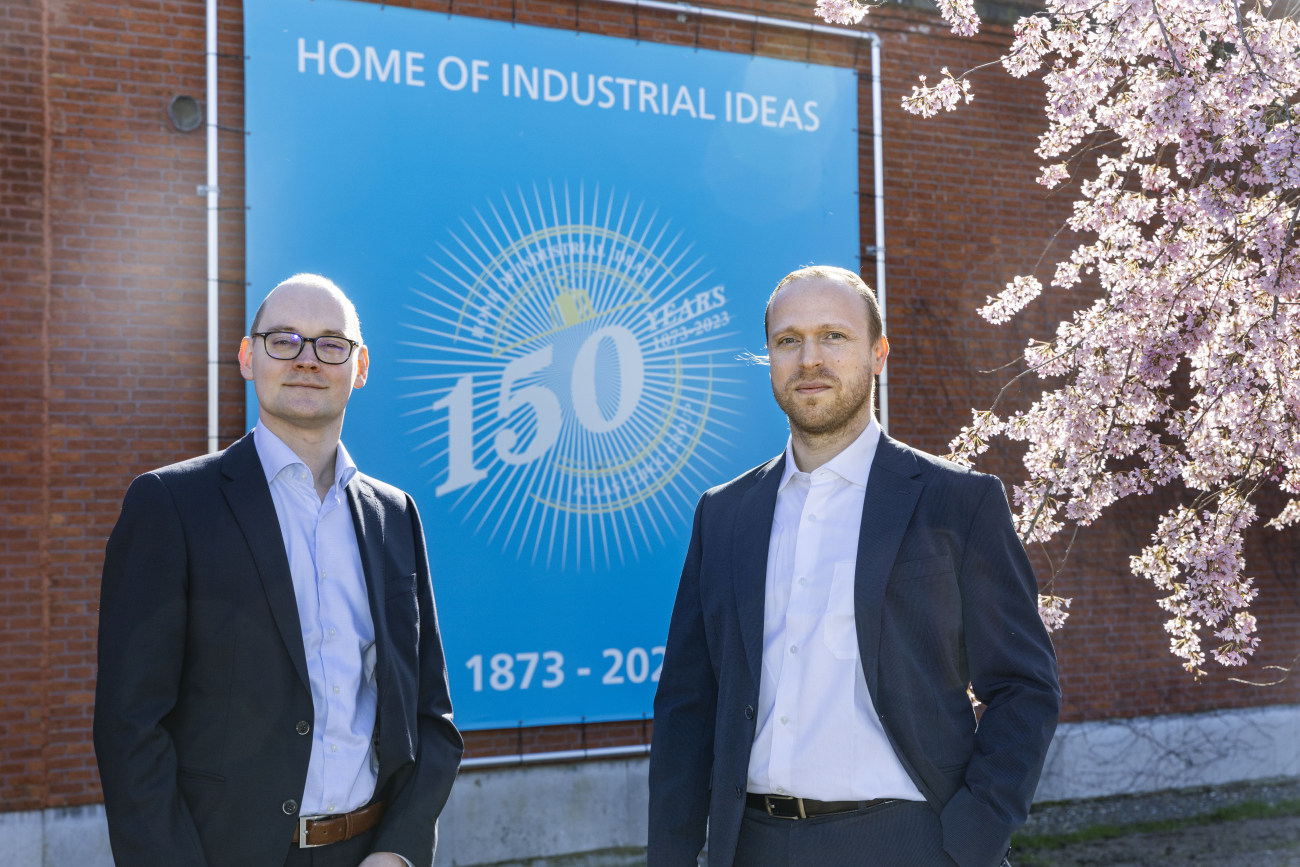
How does your partnership with NLO work?
Ignace Tack: “We look for a good balance in what we do internally and what externally. Our team mainly focuses on the strategic and business aspects. For example, considering which innovations are useful and feasible to patent, or how we can enforce our patent rights. To obtain those patents or other IP rights, we then use the specific knowledge of NLO. Meeting inventors and drafting the patent application is very time consuming. Writing patent applications is one thing, but arriving at a definition and expressing the core of the invention is another skill. We often involve NLO in that.”
Ewan Van Minnebruggen: “The same with oppositions. These are typically huge dossiers which involve a lot of man-hours - and which we also always want to win. It’s therefore important that someone with enough focus can work on them. As the first sounding board in the company, we are always involved in lots of things, so it’s valuable for us to have a dedicated person from NLO working on them.”
Atlas Copco not only grows through innovation but also through many acquisitions. Is your team involved in those too?
Ewan Van Minnebruggen: “As in any innovation project, we are also involved in every acquisition. An important part of the due diligence prior to any acquisition is assessing the patent position and the brand value of the companies concerned. We can assess the strength of the patents or place the patents compared with portfolios of competitors. But to be able to evaluate an IP portfolio, you also need to see it in the whole context of the company. We usually arrive at the final evaluation in consultation with other experts.”
It sounds as if your group is at the heart of the organisation.
Ewan Van Minnebruggen: “IP is definitely present in many aspects of what we do as a company. But that’s how it should be, I feel. That’s why we organise IP awareness campaigns and organise training sessions to different groups. That helps highlight IP at all levels among our people. I am regularly invited to update our board on our IP activities. I remember one important product launch for which our CEO personally ordered maximum IP protection. And he was right, because that machine was copied on a wide scale. With our IP rights, we were able to take effective action. And when we were taking photos just now, I asked permission from our Plant and Property manage to use that location. We got permission, but he asked us to be careful about trade secrets and that the photographer should not take photos of certain things. So our security people are also aware of the value of our IP. That’s fantastic, and I’m really proud that our employees are so aware of it.”

